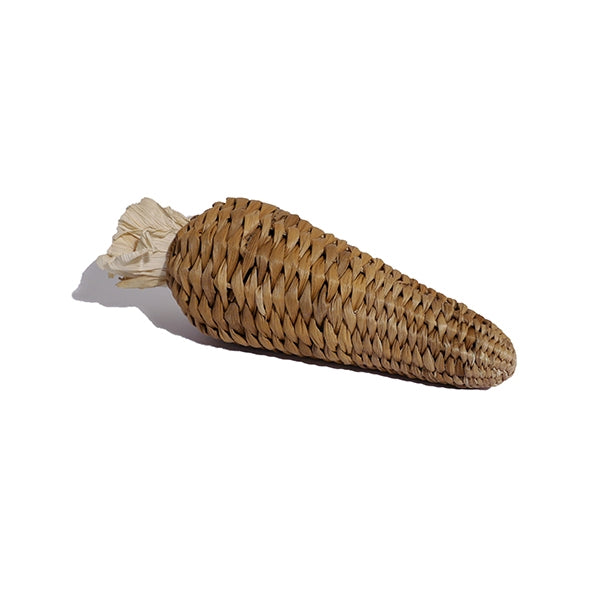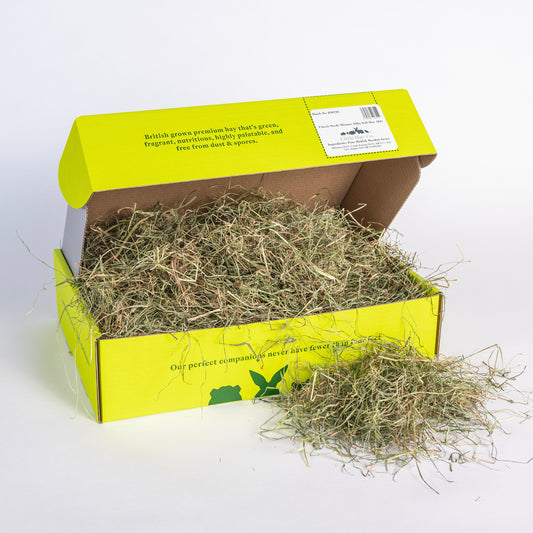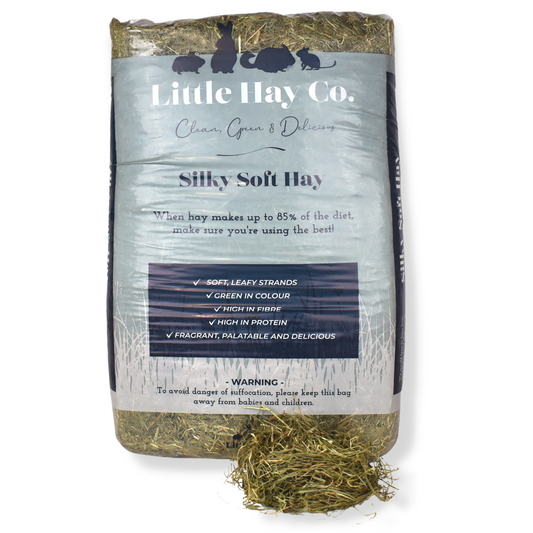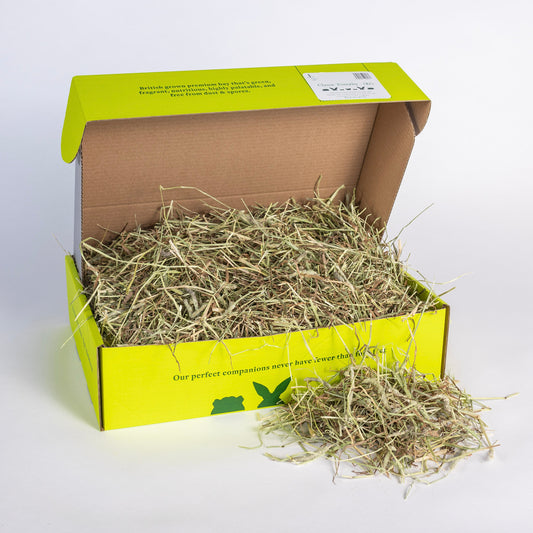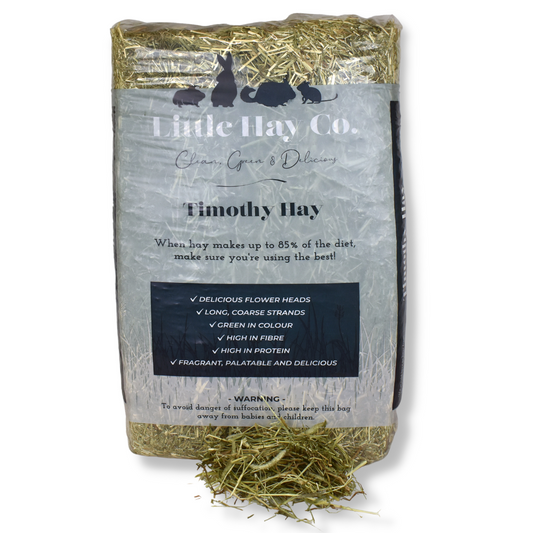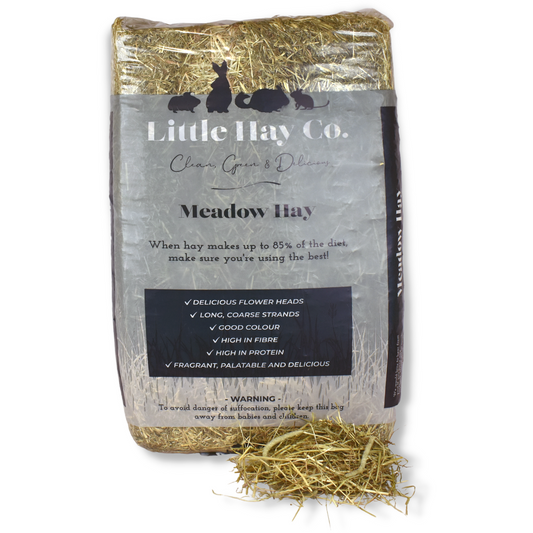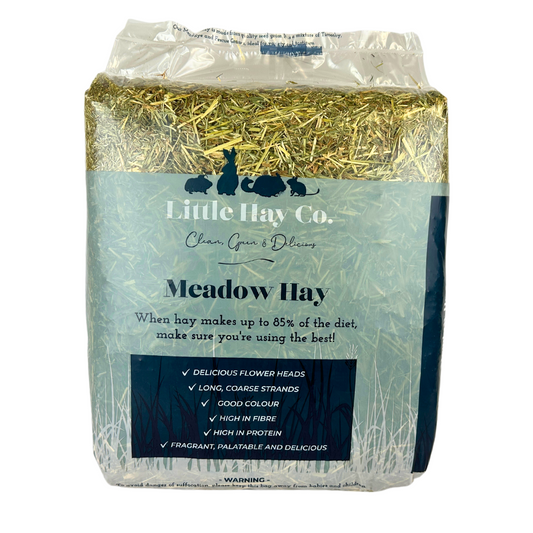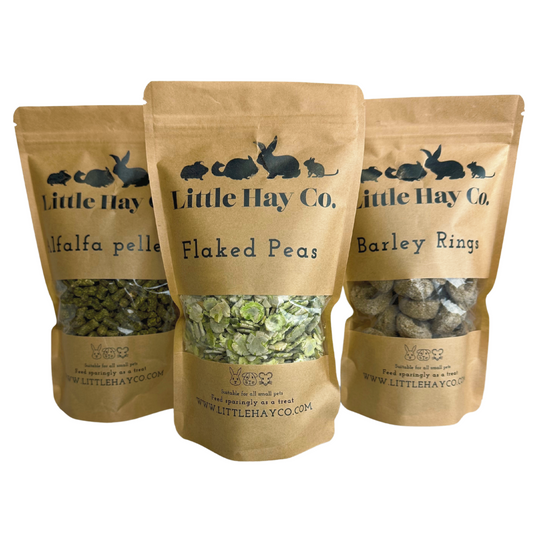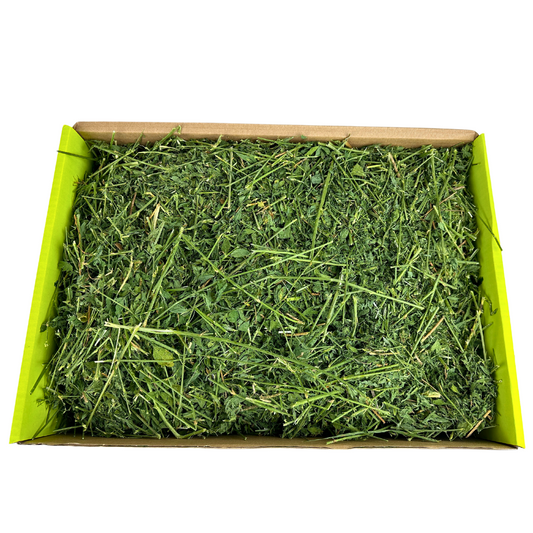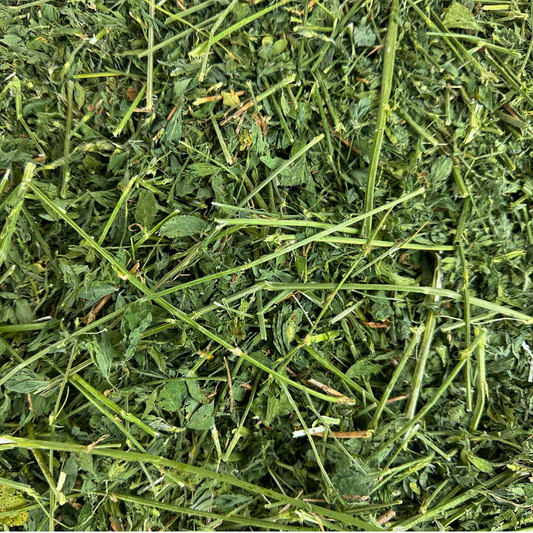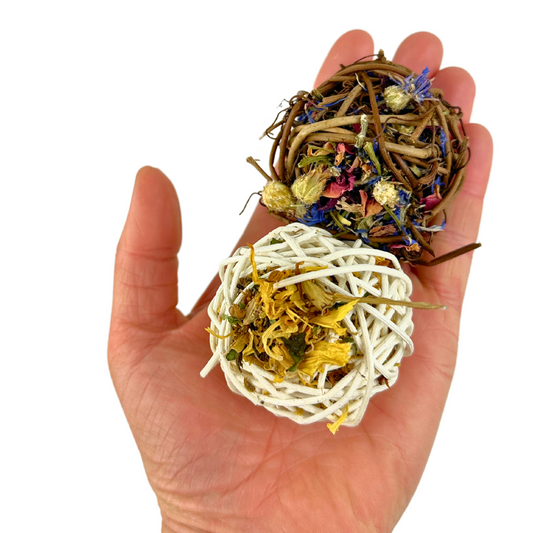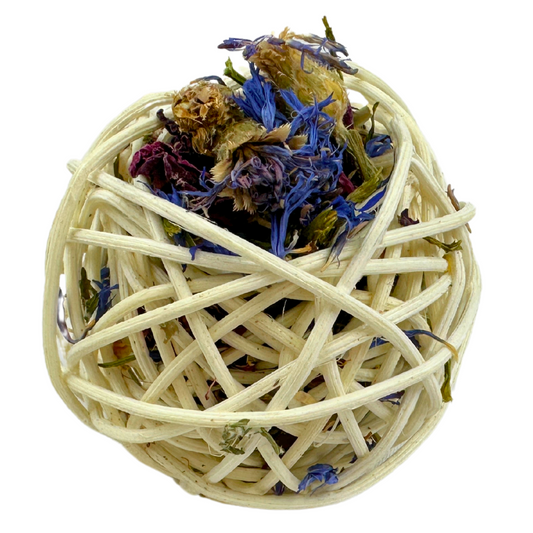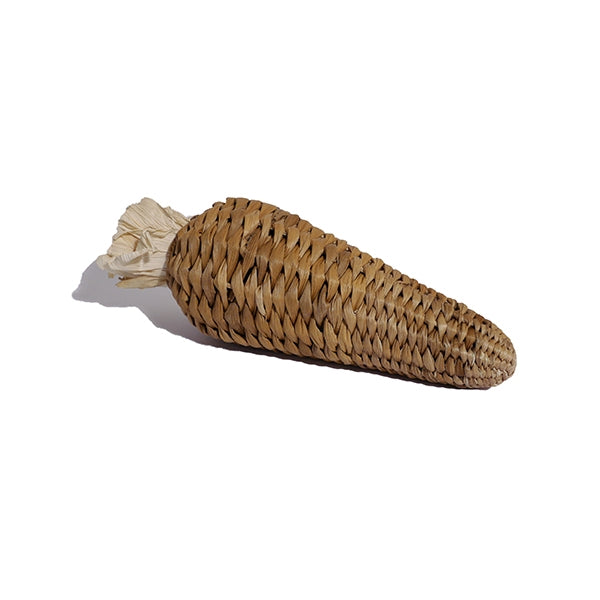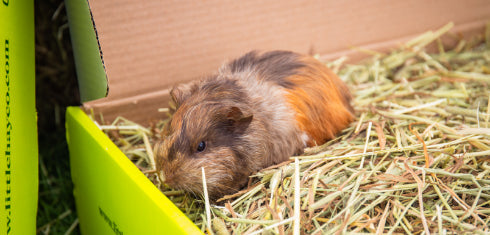
All our packaging
is recyclable.

Fast Shipping:
Order by 1pm for Same Day Despatch
Monday - Friday.

No-one wants an unhappy pet.
Contact us on info@littlehayco.com
if you need support with your order.

We use a unique process to
ensure consistent quality of our
premium hay. See details.
-
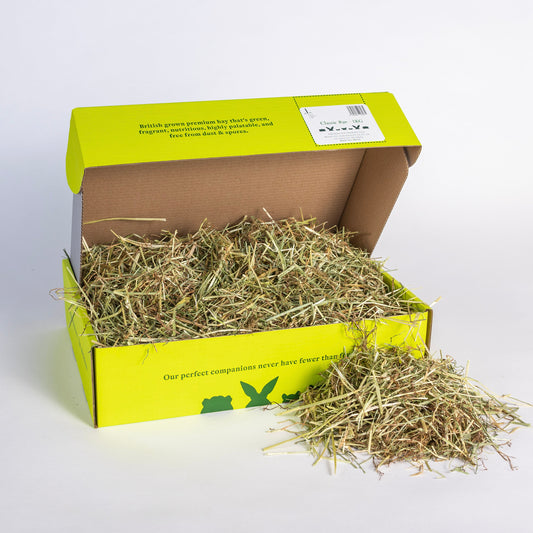
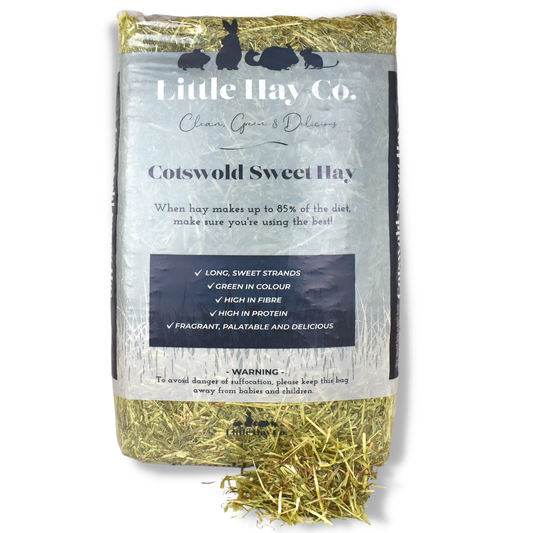 Sold out
Sold outCotswold Sweet Hay
Regular price From £6.99Regular priceUnit price per -
Silky Soft Hay
Regular price From £6.99Regular priceUnit price per -
Timothy Hay
Regular price From £6.99Regular priceUnit price per -
Meadow Hay
Regular price From £6.50Regular priceUnit price per -
Treats Bundle - Alfalfa Pellets/ Flaked Peas / Barley Rings
Regular price £9.99Regular priceUnit price per -
Alfalfa Hay
Regular price £8.00Regular priceUnit price per -
A Duo of Mini Rattan Forage Balls
Regular price £3.50Regular priceUnit price per
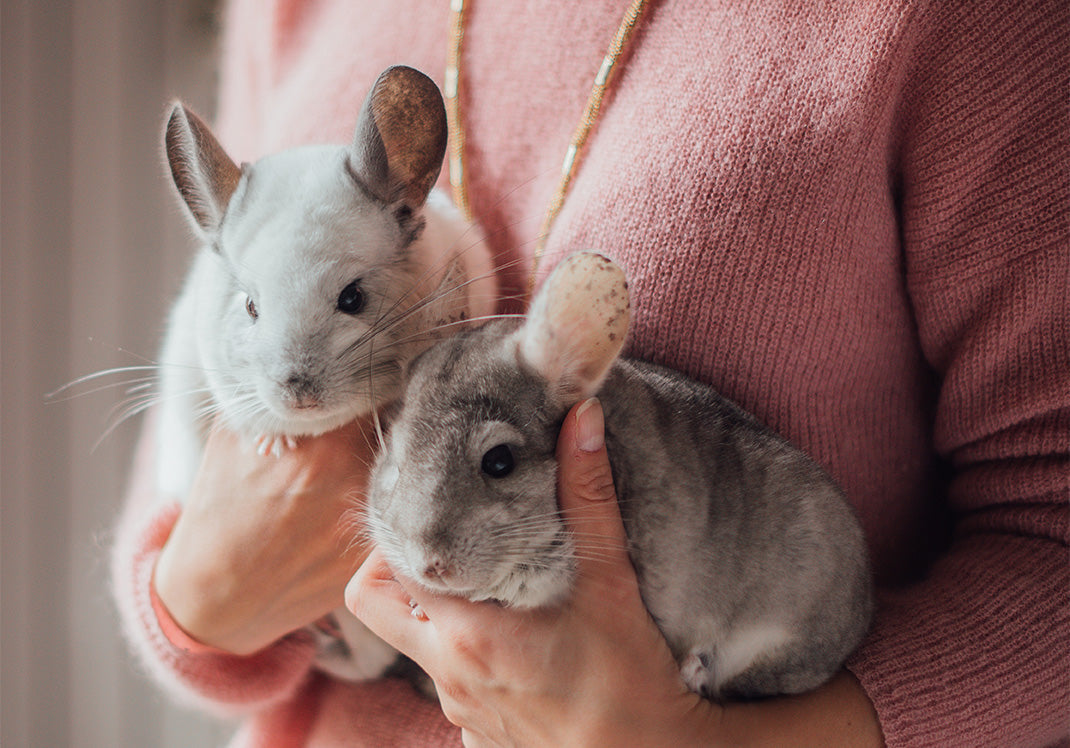
Irresistible Chinchilla hay from the heart of the Cotswolds
Chinchillas thrive on diets packed with healthy fibres, and hay is a core component of their intake.
Our ultra-premium Cotswold hay is produced with exacting standards to ensure every bale is full of the natural minerals, nutrition and fibre Chinchillas need for good digestion as an optimal main food source supplemented with low-sugar vegetables.
Chinchilla Hay FAQs

-
What are the key benefits of high quality hay for my chinchilla?
Chinchillas are herbivores and like many small herbivores they need a diet made up of around 85% hay. When hay makes up that much of an animals diet it is important that the hay it top quality and appetising.
Chinchillas needs hay to help with their digestive health, teeth maintenance and overall condition.
Chinchillas can gain weight easily so a low fat, high fibre hay is important. Timothy hay is largely agreed to be the best choice for Chinchillas due to this high fibre value.
Like rabbits, Chinchilla teeth are always growing so a stalky hay helps keep teeth ground down as well as other chews and treats.
-
How much hay should I feed my Chinchilla?
Chinchillas should have access to high quality hay all the time. Many Chinchilla parents use a hay rack and keep it fully stocked throughout the day and night! Chinchillas are most active at night so it is good to do a quick check before going to bed!
-
What else should I feed my chinchilla as well as hay?
Chinchilla like treats, but this should be no more than 15% of their diet. Without this balance of 15% treats to 85% hay dental and digestive problems can occur. If you notice any worrying symptoms, please consult your vet.
-
How long do Chinchillas live for?
Chinchillas live for around 10-20 years. So if you are thinking of getting a pet Chinchilla it is important to be sure you are ready for a long term commitment.
-
Are Chinchillas Social?
Yes Chinchillas are highly social animals and are best kept in groups or neutered pairs.
In the wild Chinchillas live in large colonies often in numbers of around 100!

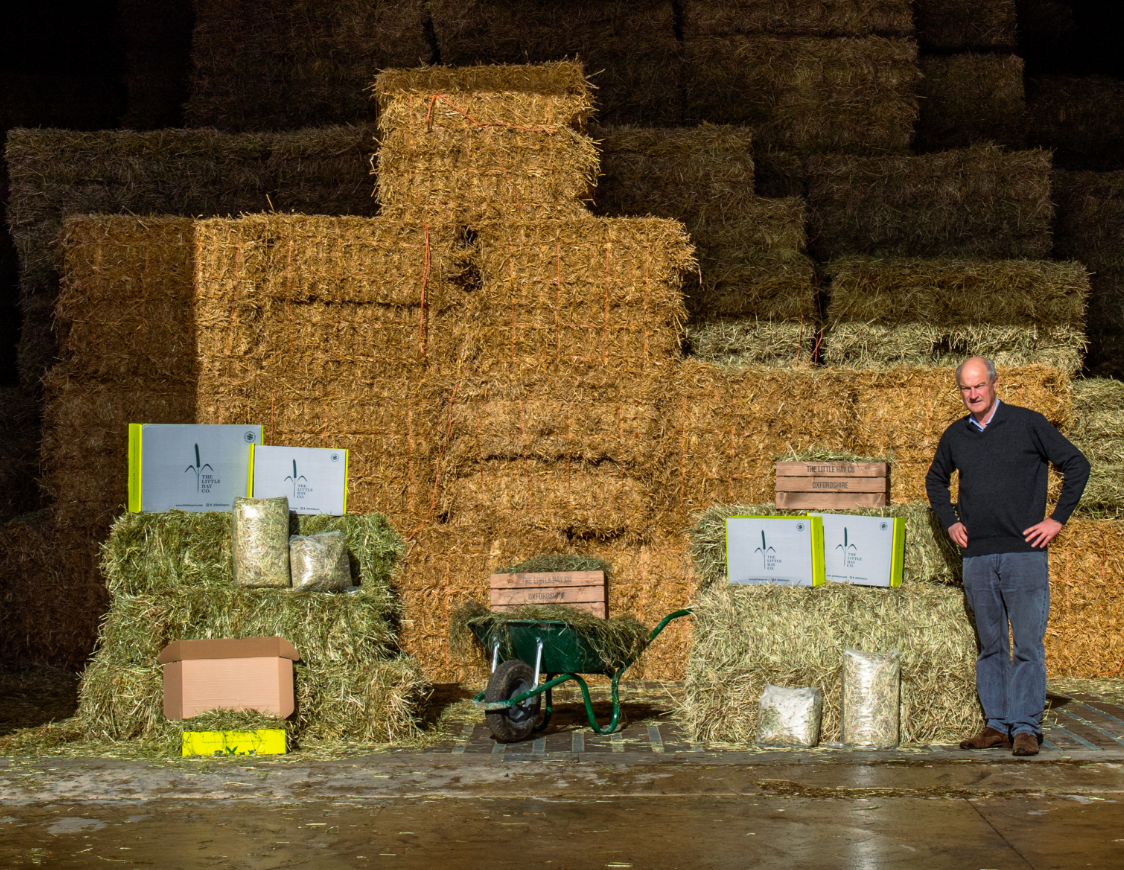
The Little Hay Co. Hay Production Process
While hay is widely available from British pet food retailers, conventional farming methods often mean a large proportion of animal hay has been exposed to damp conditions before baling – this causes mould and spores, which can be dangerous for small species.
Our exceptional hay is collected within 24 hours and baled in weather-controlled conditions to retain an ideal 12% moisture content without any dust at the bottom of the bale or spores contaminating the hay.
Chinchilla diets should be carefully regulated since excessive sugar, or substandard fibre can create serious illnesses, including dental conditions and liver damage. Some common behaviours, such as fur chewing, are also linked with a lack of fibre and overgrowing teeth, which can be addressed with a plentiful supply of hay.
Natural Cotswold hay is an excellent option with the right blend of fibre and protein, which keeps Chinchilla's teeth and digestive systems in perfect health.
Not sure yet or just getting started?
Every pet is different and will prefer different hay types. Why not start with our sample pack?
Banana Leaf Carrot Stuffer
